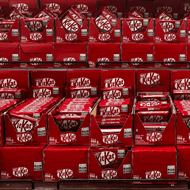Nestlé Downplays Impact of Shareholder Vote on Nutrition
Posted by Emily on 21st Apr 2024 Reading Time:
Nestlé recently faced a significant challenge from a minority of its shareholders who advocated for a shift towards more nutritious products. Despite an 11 per cent shareholder vote in favour of the resolution to enhance the nutritional value of its offerings, the majority aligned with the company's board. Investors such as Legal & General and the National Employment and Savings Trust, representing 12 million British pensioners, pushed for a more stringent approach to reducing unhealthy ingredients such as salt, fat, and sugar in Nestlé's products.
 ArionStar, CC0, via Wikimedia Commons
ArionStar, CC0, via Wikimedia Commons
These dissenting shareholders urged the Swiss conglomerate to adopt stricter targets for the proportion of healthier food offerings. Last year, Nestlé aimed to increase the sales of nutritious products, a goal critics argue merely aligns with its overall sales strategy and inaccurately labels coffee - a major product - as nutritious.
At the shareholder meeting in Lausanne, nutritionist Holly Gabriel from ShareAction, the leading group in this movement, emphasised the importance of balance. "This is not about banning KitKats," Gabriel stated. "It is about Nestlé future-proofing its business to rely more on the sales of healthy food."
Nevertheless, 88 percent of the shareholders supported the company's current strategy, which, according to the board, helps maintain the competitiveness of their portfolio without real benefits to public health. Only one percent abstained from the vote.
ShareAction reflected on the results with a forward-looking view: "Although the vote achieved was smaller than hoped, the trend is clear. Investors and consumers are gradually recognising the need to address the business and public health risks associated with high sales of unhealthy foods," they stated.
 Cheerios, Girvan by Billy McCrorie, CC BY-SA 2.0, via Wikimedia Commons
Cheerios, Girvan by Billy McCrorie, CC BY-SA 2.0, via Wikimedia Commons
With a global workforce of 300,000 and annual sales of SwFr93 billion (£82 billion), Nestlé is a major player in the food industry, producing a diverse range of products from Cheerios and Maggi soups to Smarties and Nescafé. In response to the resolution, Nestlé highlighted the evolution of its product range: "Ten years ago, 30 percent of our sales came from coffee, pet care, and Nestlé Health Science products. That figure is now 50 percent," the company noted.
We invite you to share your thoughts on this issue. How should major food companies like Nestlé balance public health concerns with their product strategies?

